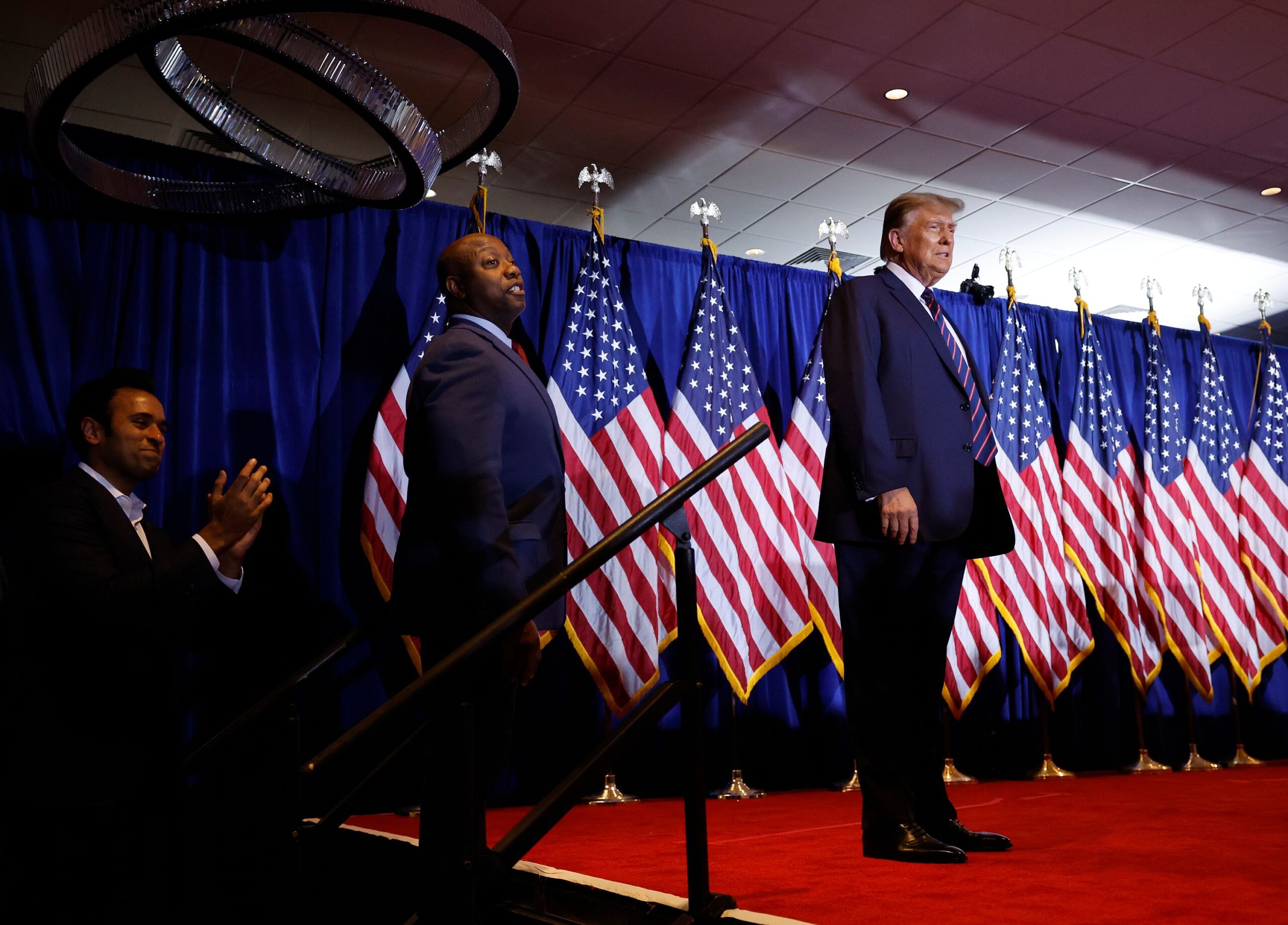The initial Republican presidential nominating contests have reaffirmed a truth evident for nearly a decade: Donald Trump’s influence within his party is unparalleled. However, the Iowa caucus and New Hampshire primary have also revealed significant vulnerabilities in Trump’s electoral strategy and potential obstacles in the upcoming general election.
Trump’s campaign is acutely aware of the divisive nature of their candidate. As the team transitions towards a general election strategy, the focus will shift to broader issues such as immigration, the economy, and crime. The campaign has also used the early primary contests to experiment with new strategies, including efforts to expand the electorate.
In Iowa, the campaign utilized eight years of data to identify individuals who had previously supported Trump but had not caucused for him. Volunteers were then mobilized to engage these individuals. Senior advisers to Trump have indicated plans to implement this approach nationwide to overcome the inevitable challenges that Trump will face in the general election.
The campaign also plans to engage with traditionally Democratic-leaning groups where enthusiasm for President Joe Biden is waning, according to a source close to Trump. “The focus for him is bringing over new coalitions,” the source said. “Can you keep the focus on Black voters, can you chip away at Hispanic voters, young voters?”
Despite Trump’s decisive victories that have forced all but former South Carolina Gov. Nikki Haley to exit the race, there are signs of potential trouble. In Iowa, nearly half of the Republicans who participated were so motivated to see a new face represent the party that they braved harsh weather conditions to caucus for someone other than Trump. In New Hampshire, nearly six in 10 independents voted for Haley, according to CNN’s exit poll, and she significantly outperformed Trump among voters who prioritized temperament in their candidate.
Trump’s legal challenges have become a political rallying cry, but a significant portion of the GOP electorate in both Iowa (31%) and New Hampshire (42%) expressed concerns about his fitness for presidency if convicted of a crime. In response to these realities, Trump is urging Republicans to quickly rally behind him for the betterment of the party and to prevent further exposure of divisions within the GOP.
Many Republican leaders have already pledged their support for Trump. However, New Hampshire Gov. Chris Sununu, a top supporter of Haley, dismissed these endorsements as “nonsense.” Sununu argued that Trump has done little to alleviate Republicans’ concerns about his electability, citing his losses to Biden in the last major election and the 2022 midterms.
Concerns are not limited to Haley supporters. On Capitol Hill, Republicans are already expressing anxiety about what Trump’s likely nomination will mean for their chances of retaining the House and regaining the Senate. One House Republican in a swing district told CNN that Trump’s nomination could cost the GOP control of their chamber.
Florida Gov. Ron DeSantis also expressed concern about the low turnout in Iowa, calling it a “warning sign” for the party. Even as he endorsed Trump after ending his own presidential bid, DeSantis acknowledged that the party needs to work on engaging voters who have “checked out” due to Trump’s continued involvement.
Trump’s campaign is expected to shift its messaging to focus more on his record on the economy, immigration, and crime – areas where they believe Trump has a stronger appeal to the general public than Biden. However, with recent improvements in consumer confidence and a decrease in inflation, Republicans may need to reassess their strategy.
CORRECTION: This story has been updated to accurately describe Donald Trump’s majority win in the Iowa caucuses.

